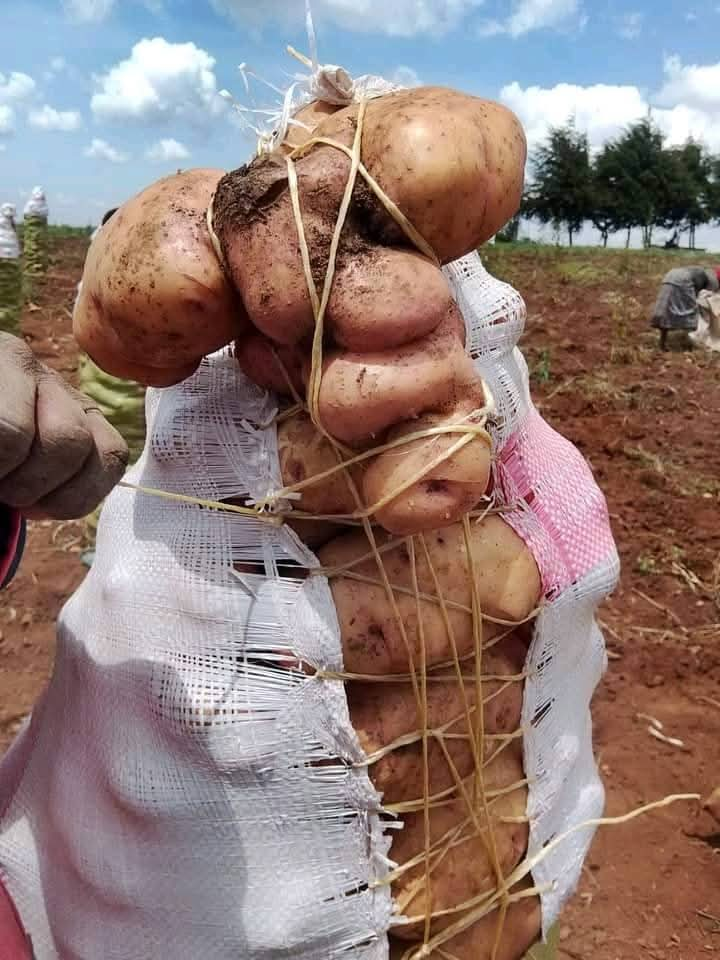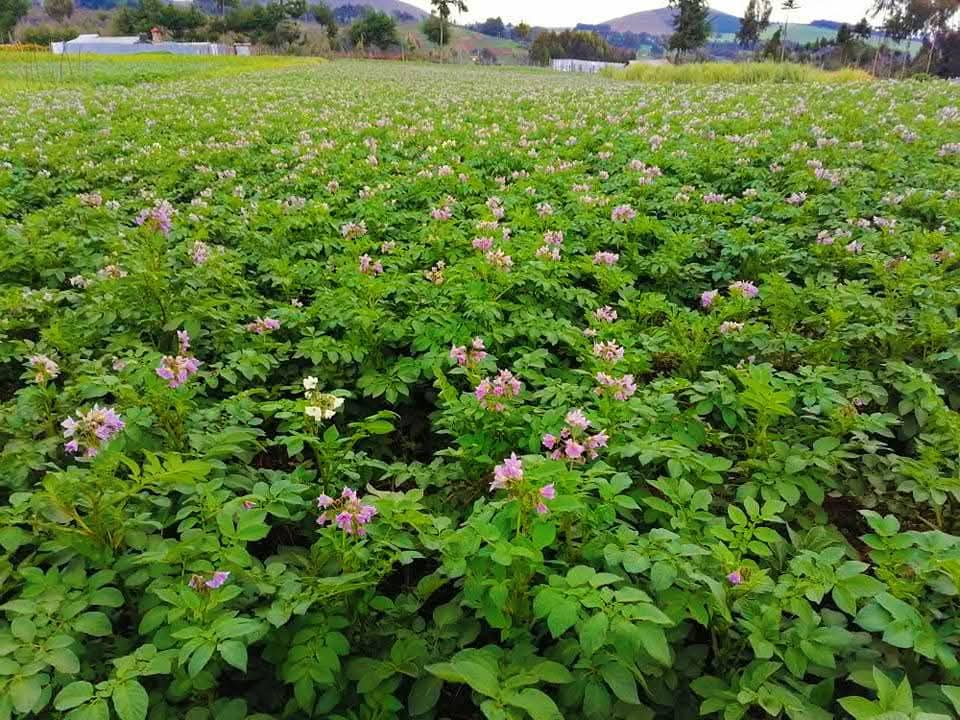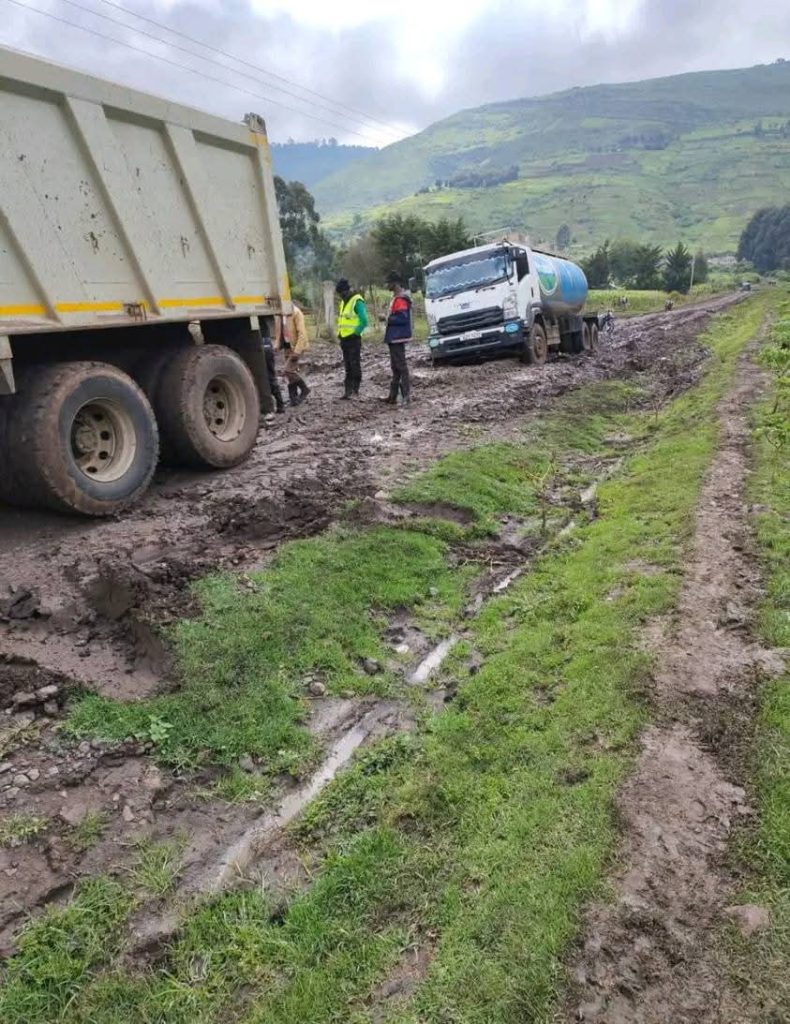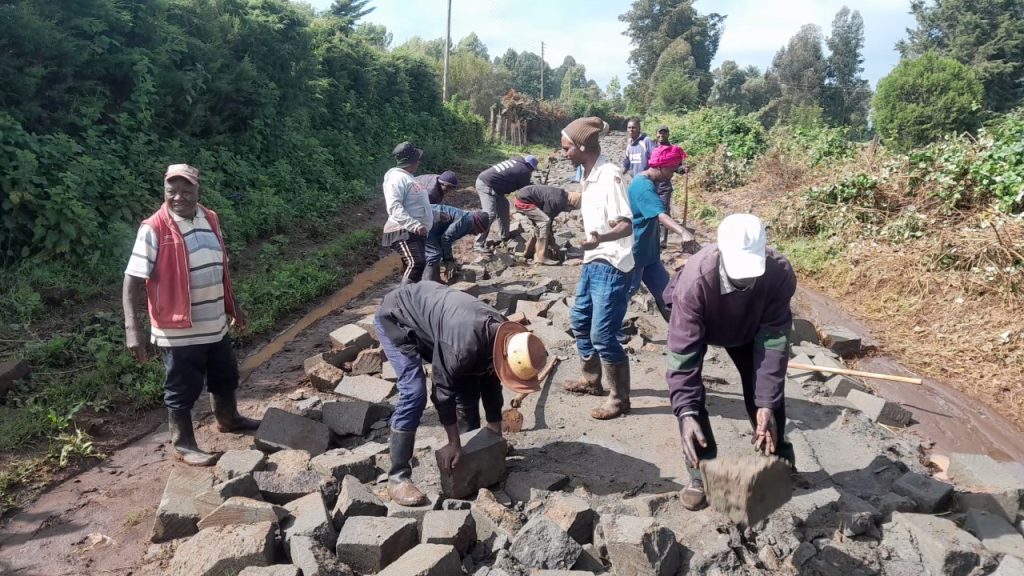In 2020, the Nyandarua County Government invested Ksh 500 million in road construction equipment; nonetheless, inadequate road infrastructure still impedes the region’s economic development. The main driver of Nyandarua’s economy, agriculture, is still among the most impacted.
Roads that have deteriorated and become inaccessible present significant obstacles for farmers trying to get their produce to markets.
They thereby incur large post-harvest losses, lower earnings, and restricted access to vital services.
A spot visit at UhuruB village in Tumaini division, Olkalou constituency, which, among other areas within Nyandarua, is agriculturally rich, indicated that poor roads had harmed businesses by reducing accessibility and increasing transportation expenses.
Farmers claim that during the rainy season, impassable roads hinder them from accessing marketplaces, resulting in losses due to spoiling and the inability to sell produce.


Locals also said that the infamously high expenses brought on by lengthier travel times and car damage from bad roads raise the cost of getting healthcare, particularly for women and children.
Farmers argue that inadequate roads can cause social isolation and limit opportunities for community engagement and social interaction, and they are urging the county administration to implement short-term measures for routine repair of rural roads.
It is believed that 33 percent of Kenya’s potato crop comes from Nyandarua County.
It boasts rich soil that yields a variety of crops, including strawberries, maize, beans, carrots, cabbages, and garden peas.
In most parts of Nyandarua, roads are impassable during the rainy seasons, and farmers end up with losses after the perishable goods go bad.
Written by Laban Muhinda











